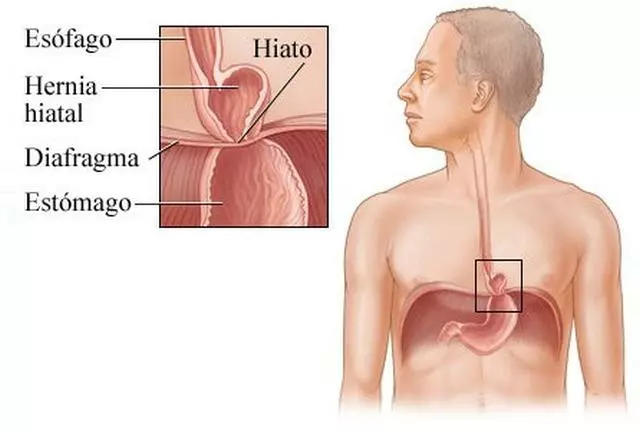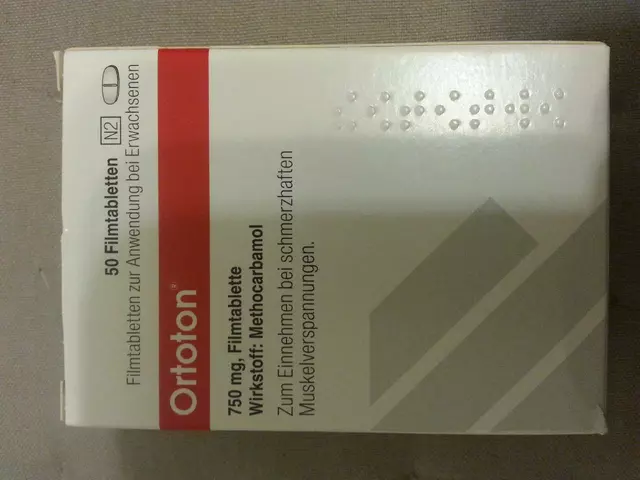Introduction: Sleep Issues and Parkinson's Disease
As someone who has been researching and writing about various health issues, I have come across numerous instances where people with Parkinson's disease face sleep disturbances. It is a common problem that affects the quality of life for these individuals, and finding effective solutions is vital. In this article, I will discuss the potential benefits of Trazodone, an antidepressant medication, for addressing sleep issues in those with Parkinson's disease.
Understanding Parkinson's Disease and Sleep Disturbances
Parkinson's disease is a progressive neurological disorder that affects movement, balance, and coordination. While the primary symptoms of Parkinson's disease are motor-related, such as tremors, stiffness, and slow movement, many individuals also experience non-motor symptoms. One of the most common non-motor symptoms is sleep disturbances, including insomnia, excessive daytime sleepiness, sleep fragmentation, and rapid eye movement sleep behavior disorder (RBD).
These sleep disturbances can have a significant impact on the quality of life for individuals with Parkinson's disease, leading to increased fatigue, cognitive decline, and emotional disturbances. Therefore, addressing sleep issues is crucial for improving overall well-being and managing the progression of the disease.
Trazodone: An Overview
Trazodone is a medication that belongs to the class of drugs known as serotonin antagonist and reuptake inhibitors (SARIs). It is primarily used to treat major depressive disorder, but it is also known for its sedative effects, making it useful for managing sleep disturbances. Trazodone works by increasing the levels of serotonin, a neurotransmitter that helps regulate mood, appetite, and sleep, in the brain.
Due to its sedative properties, Trazodone has been considered as a potential treatment option for sleep disturbances in various medical conditions, including Parkinson's disease. In the following sections, I will discuss the potential benefits, risks, and research surrounding the use of Trazodone for sleep issues in individuals with Parkinson's disease.
Advantages of Trazodone for Sleep Issues in Parkinson's Disease
There are several potential advantages to using Trazodone for managing sleep disturbances in Parkinson's disease. First and foremost, Trazodone has demonstrated effectiveness in improving sleep quality and reducing sleep latency in individuals with insomnia. This may be particularly beneficial for those with Parkinson's disease who struggle with falling asleep and staying asleep throughout the night.
In addition to its effectiveness in treating insomnia, Trazodone has also been shown to have a low risk of dependency and a favorable side effect profile compared to other sedative medications, such as benzodiazepines. This makes Trazodone a potentially safer option for long-term use in managing sleep disturbances in individuals with Parkinson's disease.
Moreover, since Trazodone is an antidepressant, it may also help address mood disturbances that are commonly experienced by individuals with Parkinson's disease, providing additional benefits beyond sleep improvement.
Risks and Potential Side Effects of Trazodone
While Trazodone may offer benefits for managing sleep disturbances in Parkinson's disease, it is essential to be aware of the potential risks and side effects associated with its use. Some of the most common side effects of Trazodone include dizziness, drowsiness, dry mouth, and headache. In some cases, Trazodone may also cause more severe side effects, such as low blood pressure, irregular heartbeats, and serotonin syndrome, a potentially life-threatening condition caused by excessive serotonin levels in the brain.
It is also worth noting that Trazodone may interact with other medications commonly used to manage Parkinson's disease symptoms, such as levodopa and dopamine agonists. Therefore, it is critical to consult with a healthcare professional before starting Trazodone to ensure it is a safe and appropriate option for your specific situation.
Research on Trazodone and Sleep Issues in Parkinson's Disease
While there is limited research specifically examining the use of Trazodone for sleep disturbances in Parkinson's disease, the available studies suggest that it may be a beneficial treatment option. A small study published in the Journal of Clinical Sleep Medicine found that Trazodone improved sleep quality and reduced nighttime awakenings in individuals with Parkinson's disease who were experiencing insomnia.
Another study published in the journal Sleep Medicine reported that individuals with Parkinson's disease who took Trazodone experienced significant improvements in sleep quality and sleep efficiency compared to those who took a placebo. However, it is essential to note that more extensive, well-designed studies are needed to confirm these findings and establish the optimal dosing and duration of treatment for Trazodone in individuals with Parkinson's disease.
Alternative Treatments for Sleep Issues in Parkinson's Disease
While Trazodone may be a potential option for managing sleep disturbances in Parkinson's disease, it is essential to be aware of alternative treatments that may also be effective. Some other treatment options for sleep issues in Parkinson's disease include:
- Behavioral interventions, such as cognitive-behavioral therapy for insomnia (CBT-I), sleep hygiene education, and relaxation techniques
- Other medications, such as melatonin, benzodiazepines, and non-benzodiazepine sedatives
- Light therapy, which involves exposure to bright light during the day to help regulate sleep-wake cycles
- Exercise and physical therapy to improve overall health and well-being
It is essential to consult with a healthcare professional to determine the most appropriate treatment plan for your specific sleep issues and overall health needs.
Conclusion: Trazodone and Sleep Issues in Parkinson's Disease
In conclusion, Trazodone may offer potential benefits for managing sleep disturbances in individuals with Parkinson's disease. Its sedative effects, low risk of dependency, and favorable side effect profile make it an attractive option for addressing sleep issues in this population. However, it is essential to be aware of the potential risks and side effects associated with Trazodone and to consult with a healthcare professional before starting treatment.
While more research is needed to confirm the effectiveness of Trazodone for sleep issues in Parkinson's disease, the available evidence suggests that it may be a valuable treatment option. As always, it is crucial to explore all available treatment options and work closely with your healthcare team to develop a comprehensive plan for managing your sleep disturbances and overall Parkinson's disease symptoms.







I've seen this come up in my neurology readings. Trazodone isn't magic, but for some PD patients who can't tolerate benzodiazepines, it's a decent stopgap. Not first-line, but worth considering if other options fail.
Let me be blunt: Trazodone is the quiet hero of neurologic sleep management. It doesn't dazzle with flashy mechanisms, but its gentle serotonergic modulation-without the cognitive fog of benzos or the dependency nightmares of z-drugs-makes it a surprisingly elegant choice for Parkinsonian insomnia. The 25–50 mg sweet spot? Often overlooked. And yes, the orthostatic hypotension risk is real, but so is the risk of sleep-deprived dementia progression. Weighing trade-offs isn't optional-it's clinical necessity.
My father has been on trazodone for 18 months now. His nighttime awakenings dropped from 6–7 to 1–2. He still wakes up groggy sometimes, but he’s actually slept through the night more than he has in years. I wish more doctors would consider this before pushing melatonin or sleeping pills.
I’ve sat with people who’ve tried everything-melatonin, gabapentin, even hypnotics-and trazodone was the only thing that didn’t make them feel like a zombie or get them hooked. It’s not perfect, but it’s the closest thing to a quiet, respectful solution for sleep in PD. Kinda like giving the brain a soft place to land after a long day of fighting its own wiring.
I can't believe you're even suggesting this. Trazodone? In the U.S., we have FDA-approved alternatives with actual clinical trials-not some off-label antidepressant repurposed because the pharmaceutical industry ran out of ideas. This is why American medicine is falling behind Europe and Japan-because people like you treat sleep like a side quest instead of a core neurological issue.
It is imperative to underscore that while anecdotal evidence and small-scale studies suggest potential utility, trazodone remains off-label for Parkinsonian sleep disturbances. Clinical decision-making must prioritize evidence-based guidelines, patient-specific comorbidities, and pharmacokinetic interactions-particularly with levodopa and MAO-B inhibitors. Consultation with a movement disorder specialist is strongly advised prior to initiation.
my grandpa’s on it and honestly? he sleeps like a rock now. no more yelling in his sleep about the 80s or getting up to ‘check the stove’ at 3am. yeah, he gets a little dizzy sometimes, but hey-better than being awake all night. doc said it’s fine as long as he doesn’t drink or stand up too fast. simple stuff.
I’ve been reading up on this for my mom’s diagnosis, and honestly, the most surprising thing isn’t trazodone’s efficacy-it’s how rarely it’s discussed in mainstream PD forums. Everyone talks about melatonin or deep brain stimulation, but no one mentions that a $5 generic pill might be the thing that finally lets her rest. The research is thin, sure, but the real-world impact? Massive. I’ve seen patients go from exhausted and irritable to calm and engaged after starting low-dose trazodone. It’s not a cure, but it’s a lifeline for families who’ve lost nights-and years-to insomnia.
The pharmacodynamic profile of trazodone, specifically its 5-HT2A receptor antagonism and SERT inhibition, confers a unique neurochemical signature that may modulate REM sleep architecture without suppressing slow-wave activity-critical for neurorestoration in PD. However, the concomitant use of dopamine agonists necessitates rigorous monitoring for serotoninergic toxicity, particularly in elderly patients with compromised hepatic metabolism. The absence of large-scale RCTs remains a significant limitation in clinical translation.